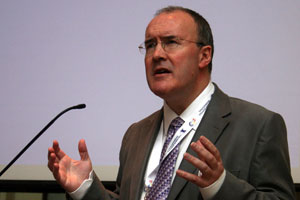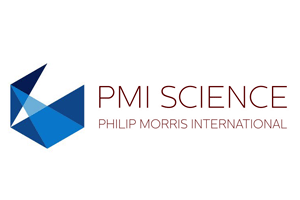Registration has opened for the Global Forum on Nicotine (GFN) 2019, with a special offer on delegate fees.
The sixth GFN is scheduled to be held at the Marriott Hotel, Warsaw, Poland, on June 13-15.
The organizers say that those who register by the end of this year will pay the same fee as they paid for attending this year’s event.
The GFN 2018 attracted about 450 people from more than 60 countries and was reckoned by the organizers to have been the most successful GFN to date.
Pre-event publicity for the 2018 event described it as including a conference comprising plenary sessions, parallel sessions and panel debates; a film festival; and the second International Symposium on Nicotine Technology (ISoNTech).
Further information is available from: joanna@kachange.eu.
Category: People

GFN registration opens

Drug link to lung cancer
Millions of ‘Americans’ take angiotensin-converting enzyme (ACE) inhibitors to lower their blood pressure, but a new study suggests these drugs might increase their odds of developing lung cancer, according to a story by Steven Reinberg for HealthDay citing a new study.
But lead researcher Laurent Azoulay, an associate professor of epidemiology and oncology at McGill University, Montreal, Quebec, Canada, cautioned that the research was based on an observational study that could not prove that these drugs caused lung cancer.
Among people taking the drugs for more than five years, the increased risk might be as high as 14 percent, which could represent a large number of patients, the study authors noted.
“The silver lining of our findings is that while we found an association, the risk at the individual patient level is likely low, even after 10 years of use,” Azoulay was quoted as saying.
“For this reason, this should not deter patients from taking these drugs, should their physician deem the treatment appropriate.”
FDA blocking progress
The first electronic cigarette to receive UL 8139 certification, a safety standard that evaluates the electrical and battery systems of vaping devices, will go on sale in Canada next week, according to a story by Herb Weisbaum at nbcnews.com.
But it won’t be available in the US.
Weisbaum said the vaping industry blamed the US Food and Drug Administration, which regulates tobacco products, including ‘deemed’ tobacco products such as e-cigarettes, for preventing US citizens from buying safety-enhanced devices.
“They have locked us into antiquated technologies,” Tony Abboud, executive director of the Vapor Technology Association, was quoted as saying. “The US Government is suppressing innovation in a way that can only harm consumers going forward.”
As reported here on October 16, UL, the global safety company that tests and certifies tens of thousands of consumer products each year, now has a safety standard for electronic cigarettes: ANSI/CAN/UL 8139, Electrical Systems of Electronic Cigarettes and Vaping Devices. This standard has been recognized by the American National Standards Institute (ANSI) and the Standards Council of Canada (SCC), covering the electrical, heating, battery and charging systems of these products.
But when Joyetech’s eGo A10 vapor pen, the first UL-certified vaping device, hits the market this month it will be sold in Canada but not the US.
Joshua Church, Joyetech’s chief regulatory and compliance officer, was quoted by Weisbaum as saying safety was important to his company. “We did this [UL certification] to protect American consumers, but we can’t sell directly to them,” Church said in an exclusive interview from Shenzhen, China.
The problem is, as Weisbaum goes to some length to explain, that the FDA prohibits the sale of any new or modified e-cigarettes that were not sold in the US prior to August 8, 2016, without pre-market approval; for which it is only now developing guidelines.
Call for duty freeze
Campaigners have urged the UK Chancellor Philip Hammond to freeze tobacco duty when he delivers his autumn budget statement on October 29.
Simon Clark, director of the smokers’ group Forest said today that tobacco duty had been rising for years because of the so-called tobacco tax escalator.
Today, more than 80 percent of the retail price of cigarettes and rolling tobacco went to the government.
And a further increase in tobacco duty would once again hit those who could least afford it, including the elderly and the low paid.
“As well as forcing some people further into poverty, it will inevitably encourage others to buy their tobacco abroad or on the black market at home,” Clark said.
“This will hit legitimate retailers and the government will lose revenue; so no-one wins apart from criminal gangs and illicit traders.”
Calling for a freeze on tobacco duty, Clark said that while smoking might not be a healthy lifestyle choice, tobacco was a legal product and targeting smokers with punitive taxation was unfair on consumers and retailers.
“Fair’s fair,” he said. “A freeze on tobacco duty is long overdue and would be welcomed by millions of smokers who are tired of being singled out by successive governments.”
Vive la différence
A recent report by Nicotine & Tobacco Research urges lawmakers not to treat electronic cigarettes and vaping devices in the same way as combustible cigarettes are treated, according to a story by Lindsey Stroud at heartland.org.
The report said that such a distinction was important because the more research treated e-cigarettes as equivalent to cigarettes, the more likely the research was to err in its conclusions about ‘these unique devices’.
The lead author, Matthew Olonoff, a PhD student at Northwestern University’s Feinberg School of Medicine, was quoted as saying that before ‘making policy changes, such as controlling nicotine or flavor options in e-cigarettes, [there is a] need to better understand what role these unique characteristics have’.
Stroud reported that the authors had used articles and studies to compare the differences between combustible cigarettes and vaping devices and noted key differences between the two, as well as differences between electronic cigarette devices.
‘These differences include the variety of nicotine levels in electronic cigarettes, vaping versus combustion, variability in nicotine dosing, the role of marketing and technology in attracting users to e-cigarettes, and the ability to use vaping devices in places where combustible cigarettes are banned,’ she said.
‘Increasingly, research indicates that the smoke in cigarettes causes the most harm, and tobacco harm reduction products, including e-cigarettes as well as smokeless tobacco, have proven to effectively deliver nicotine in a manner much less harmful than combustible cigarettes.’
Something is in the air
A French member of the EU Parliament has asked the Commission why it has taken so long for it to take concrete action on breaches of EU rules on air quality.
In a preamble to his questions, which are due to be answered in writing, Guillaume Balas said that, for a number of years, France and several other EU countries had been in breach of the EU rules on air quality (Directive 2008/50/EC).
In these countries, the concentrations of nitrogen dioxide (NO2) and particulate matter (PM10) in the air had exceeded significantly the maximum levels permitted under the directive and the levels recommended by the World Health Organization.
However, despite the breaches of the rules being blatant, and despite thousands of deaths every year, all the Commission had done was to issue formal notices at regular intervals – to France in 2009, 2010, 2011, 2013, 2015, and 2017 – while waiting until 2018 to impose penalties on Poland and bring an action against France before the Court of Justice of the European Union (CJEU).
Balas said that these proceedings could take another year to reach a conclusion and that similar proceedings had rarely led to penalties being imposed.
He asked:
‘How can the Commission justify having waited 10 years to haul France before the CJEU, despite repeated warnings from the WHO about the dangers to public health?
‘How can the Commission reconcile the 10-year delay with its role as a guardian of public health in Europe?’
Trying to work with the WHO
A grouping of members of the international vaping industry and campaigners has vowed to continue to try to engage with the World Health Organization’s tobacco control group.
This is despite the group’s calls for reform having been ignored by the WHO during its biennial Conference of the Parties (COP8) to the Framework Convention on Tobacco Control that was held in Geneva earlier this month.
Organisations from 16 countries across North America, Europe, Asia and Australasia, led by the UK Vaping Industry Association (UKVIA), had signed a joint call to action addressed to the WHO asking it to treat tobacco and vaping regulation separately.
‘Since gathering in 2016, the WHO tobacco control group has encouraged member states to ban vaping products outright as part of a tobacco control plan, despite acknowledging the contribution which vaping could make to reducing global smoking rates,’ the grouping said in a press note co-ordinated by the UKVIA.
‘This position is not only at odds with countries who advocate smokers switching to vaping as part of their harm-reduction strategies – such as the UK and New Zealand – but could also open the door to potential vaping bans worldwide. Some have argued that it is also undermining progress in countries where e-cigarettes are used as an effective harm-reduction tool.
‘In spite of attempts to open a dialogue with the tobacco control group, journalists and industry were shut out of the COP8 proceedings.
‘The tobacco control group has also refused to differentiate between vaping products and tobacco products according to a report of the COP8 session. Its spokesmen have since declared that many new products marketed as smoke-free and heat-no-burn were creating confusion among consumers, “leading them to believe that they are safer to use [ than cigarettes], even though there is no independent research confirming it”.
‘Persisting in this position contradicts an ever-increasing number of independent scientific studies showing that vaping products are an effective smoking cessation tool which is less harmful than traditional tobacco products. These include reports from Public Health England, Action on Smoking & Health, the Royal College of Physicians, Cancer Research UK and the Adam Smith Institute in the UK alone.
‘The WHO’s reticence to reform its policy also stands in stark contradiction to the UK Government’s positioning on vaping products since earlier this year. In a review of the evidence to have emerged since 2015, the Department of Health concluded that regulations needed to balance the risks of vaping products with their potential benefits and that restrictions on communicating these potential benefits when compared with tobacco products should be reconsidered.
“We and our international co-signatories are extremely disappointed that the WHO tobacco control group is refusing to support harm reduction as part of its global smoking cessation strategy,” said Lizi Jenkins, a member of the UKVIA’s COP working group and head of regulatory affairs at BSMW, the e-liquid manufacturer Blend & Bottle. “By refusing to acknowledge the wealth of scientific evidence demonstrating that vaping is less harmful than smoking and is helping smokers to quit tobacco, it is doing an active disservice to public health.”
New IQOS versions
Philip Morris International said yesterday that it had launched the next generation of its heated-tobacco product, IQOS.
‘The new IQOS 3 and IQOS 3 MULTI integrate extensive consumer insights and feedback to improve design and user experience while maintaining signature taste, sensory attributes and ritual — all underpinned by strong scientific substantiation,’ PMI said in a note posted on its website.
‘The new versions aim to further encourage a growing number of smokers to switch, to the benefit of their health, public health and, ultimately, society.
‘The new iterations were launched today in Tokyo, Japan – the country considered the birthplace of IQOS.’
“Our dream was to create a better alternative for smokers, and IQOS has made this dream a reality; it’s a revolution for the 1.1 billion people who smoke,” André Calantzopoulos, PMI’s CEO, was quoted as saying. “IQOS 3 and IQOS 3 MULTI deliver significant improvement and innovation and mark another step toward convincing all men and women who would otherwise continue to smoke to switch to smoke-free alternatives. IQOS consumers know that this product changes many things in their lives – we thank them, and we thank Japan for leading this positive change.”
PMI said that robust science underpinned every development at PMI. ‘Its scientific assessment program is based on longstanding practices of the pharmaceutical industry and is in line with US Food and Drug Administration (FDA) guidance,’ the note said.
‘IQOS produces an aerosol that contains on average 90 percent lower levels of harmful chemicals than cigarette smoke. The totality of PMI’s preclinical and clinical evidence indicates that switching completely to IQOS presents less risk of harm than continued smoking.
‘Evidence also shows that IQOS does not negatively affect indoor air quality. On average, 70 to 80 percent of IQOS users have quit cigarettes, which makes IQOS the most compelling smoke-free alternative today.’
PMI said it had filed a Modified Risk Tobacco Product Application (MRTPA) for IQOS with the FDA, which was still under review.
New benefits from BAT
British American Tobacco (BAT), which employs more than 55,000 people, is launching in all the countries in which it operates a new range of benefits aimed at helping new parents employed by the company balance their home and work lives during the first year of parenthood.
Effective globally from January 1, the new benefits include a minimum of 16 weeks’ fully-paid maternity leave for new mothers and adoptive parents and includes also a return to work guarantee, flexible working opportunities and an online advice service offering coaching support for all parents whenever they need it.
BAT said the initiative would make a major difference by offering significantly better terms than existing legal requirements in ‘many’ of the 180 countries in which the group operated, including the US, where new mothers employed by Reynolds American Inc, which was acquired by the group last year, currently received on average six weeks paid leave, in line with US legislation.
Some of the other countries that will benefit from the initiative include: Algeria, Argentina, Egypt, Indonesia, Morocco, Nigeria, Pakistan, South Korea and Taiwan. In all, the new benefit will go above and beyond local requirements in 26 countries where BAT directly employs 20,000 people.
“Here at BAT, it’s of such great importance to us that our organisation is made up of as many different types of people as possible – ensuring they are rewarded, appreciated and supported, especially at times when they need it most,” Nicandro Durante, BAT’s CEO was quoted as saying in a press note issued today.
“We want to ensure no-one at BAT has to choose between their career and their family and that’s why this will be available to colleagues all over the world. We are proud to be offering this new range of parental benefits on a global scale and we are looking forward to seeing the changes this will hopefully make to the lives of both our current and future employees.”

PM takes next, big step
A new campaign that aims to persuade UK smokers to go smoke-free with the support of friends and family has been launched today by Philip Morris Ltd (PML), the UK and Ireland affiliate of Philip Morris International.
The campaign, called Hold My Light, is designed to offer the UK’s 7.4 million smokers a new, innovative approach to going smoke-free. Smokers are encouraged to ask friends and family to pledge small, practical offers of support if they commit to giving up smoking for an initial 30 days.
The £2 million campaign features a website, video and major advertising campaign across digital and print media aimed at both smokers and their potential supporters.
In a press note today, PML said that the Hold My Light campaign was based on similar behavioural-science initiatives that had created positive societal change and was aimed at the 60 percent of smokers who said they wanted to quit.
‘The website, www.holdmylight.co.uk suggests the kind of pledges that supporters might offer – from looking after your pet to cooking dinner every night,’ the note said. ‘Asking smokers to give up cigarettes for 30 days is based on Public Health England research that found smokers who gave up for 28 days were five times more likely to stop smoking completely.’
Peter Nixon, MD of PML said the campaign broke new ground that was an important next step in the company’s going smoke-free and ultimately stopping cigarette sales. “There are more options than ever before for smokers to give up cigarettes but often they don’t realise that alternatives, like e-cigarettes and heated tobacco, are a better choice than continuing to smoke,” he said. “Our research has shown that smokers want personal support from friends and family if they are to give up cigarettes – and that is what Hold My Light is designed to offer.”
The new campaign was developed by PML as part of its New Year’s commitment towards a smoke-free future and reflects the company’s position that quitting smoking and nicotine use altogether is the best decision that a smoker can make.
The company said the campaign marked the first time a tobacco company had launched a smoke-free campaign directly aimed at encouraging UK smokers to give up cigarettes.










